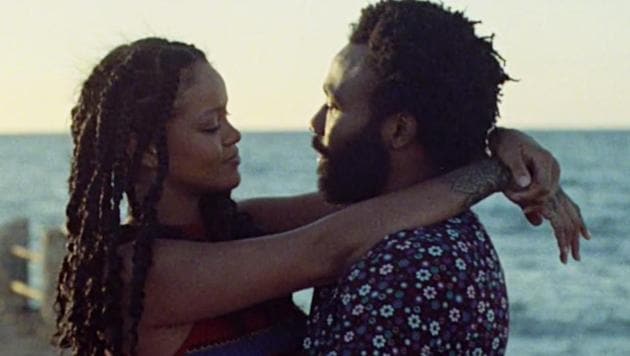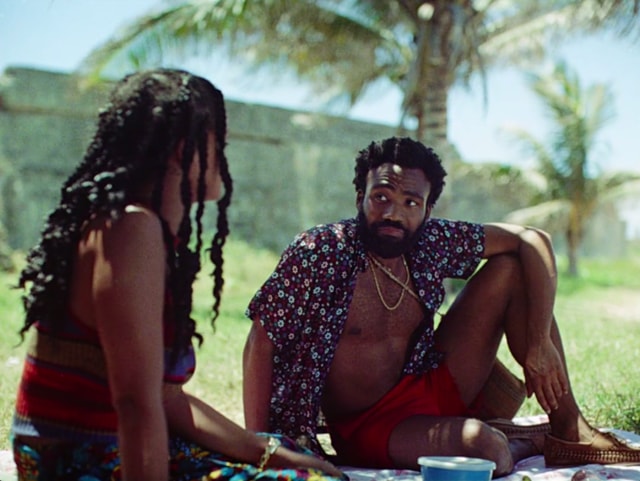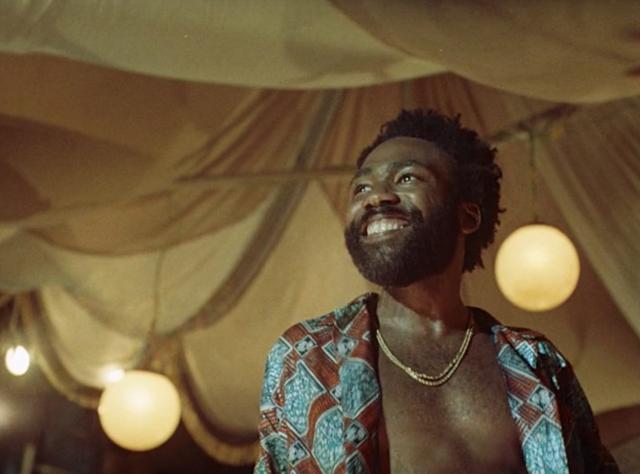Guava Island movie review: Unearth Donald Glover, Rihanna’s obscure gem from the depths of Amazon Prime
Guava Island movie review: Donald Glover unleashes his musical alter ego Childish Gambino in ambitious Amazon film, also starring Rihanna and Black Panther’s Letitia Wright. Rating: 4/5.
Guava Island
Director - Hiro Murai
Cast - Donald Glover, Rihanna, Letitia Wright, Nonso Anozie
Rating - 4/5

A year after it was reported that Donald Glover and Rihanna were working on a secret project together in Cuba, the results are ready to be shown to the world. Guava Island isn’t the duet album that many would’ve expected, nor is it a concert documentary. It’s a narrative film - at 55 minutes barely long enough to be called a feature - that adds to the aura of Glover’s alter ego, Childish Gambino, and reasserts his stature as one of America’s foremost creative artistes.
Guava Island, on the surface, appears to be just the sort of passion project that is afforded to filmmakers after massive early success, but upon further inspection reveals itself to be a densely layered work of art.
Watch a clip from Guava Island here
Glover and his Atlanta director Hiro Murai (who makes his feature debut with Guava Island) present their very unique brand of social and cultural criticism, wrapped as always in a (distractingly) vibrant package. In Atlanta, they swept away the superficiality that is usually associated with hip-hop, and told a realistic story about what it is like to be a black man in America. Guava Island peels back the layers of artifice that have obscured the world’s vision of the USA, and reveals the ugly truth inside.
Unexpectedly but appropriately, Guava Island is a companion piece to Jordan Peele’s recent horror picture, Us - dense with symbolism and metaphor.

It’s a fable of sorts, about gods and mortals, love and war. “A very, very long time ago, long before the birds, cars, and even coffee beans, the seven gods of the seven lands created the duelling truths: love and war,” Rihanna’s character says in the film’s animated opening segment, before adding, rather sagely, “but wherever there is love, war will follow.”
The gods then decided that humans would need a place away from these elements - ‘a small island, in the centre of the world’ - and they called it ‘Guava’. And it is on this mystical island that our story takes place.
Attracted by the island’s magical qualities, the Red family took over its resources, and its people, subjecting them to a lifetime of servitude. Everyone on the island is made to work in some capacity for the evil corporation, and forced to wear red uniforms; their identity and culture wiped clean.

And along comes Deni, a messiah figure of sorts, played by Glover. He is a musician - an artistic, creative rebuke to everything that the Red family stands for. The film spends a day in the life of Deni; his story is told with tragic, almost genius parallels to Ryan Coogler’s Fruitvale Station.
But Guava Island successfully veils its darkness - much like how the Red family buries the islanders’ inherent creativity - by breaking out into regular musical numbers. Perhaps one of the most forceful moments of the film is when Glover’s character launches into a provocative takedown of his country.
“America is a concept,” he says to a factory co-worker with aspirations of emigrating there one day; “To get rich, you have to make someone else richer.” And then Glover erupts into a reprisal of his groundbreaking 2018 song, This is America, set to the clashing and clanging beats of factory equipment, his iconic dancing exuding an almost warlike intensity.

This reminded me of Us’ ‘We are Americans’ scene. Like Peele’s film, Guava Island also uses visual motifs to great effect - the colours red and blue, in particular, perhaps signify the duality of American politics - and deep symbolism - Nonso Anozie’s villainous character surrounds himself with caged birds, while Deni is often likened to a free spirit. Both films are concerned with the idea of freedom - while Us used the potent image of Lupita Nyong’o in chains to invoke imagery of slavery, the residents of Guava Island are often seen in queues, sequestered, and controlled en masse.
“We live in paradise,” Deni says, “but none of us actually have the means to live here.” There are grand, humanist ideas at work here, conveyed ironically with the help of Amazon Prime.
Although it is similar in ambition to Beyonce’s Lemonade - a stunning ‘visual album’ released as a 65-minute film on HBO - Guava Island’s summery vibe is more in line with Lana Del Rey’s Tropico, an allegorical 30 minute film about ‘sin and redemption’. It’s the sort of obscure gem that needs to be championed.
Follow @htshowbiz for more
The author tweets @RohanNaahar






